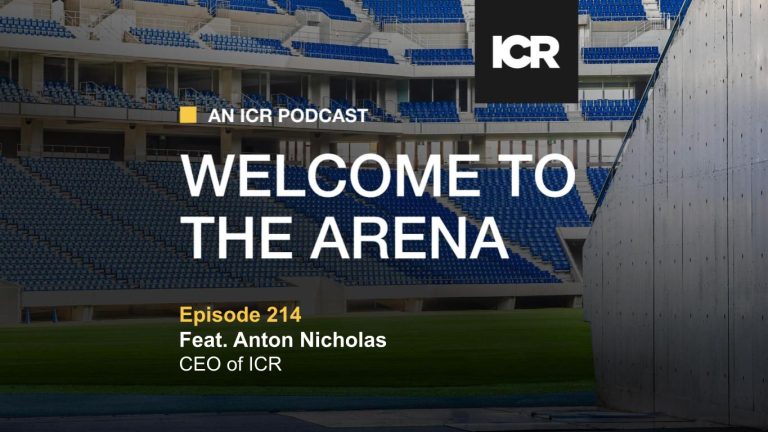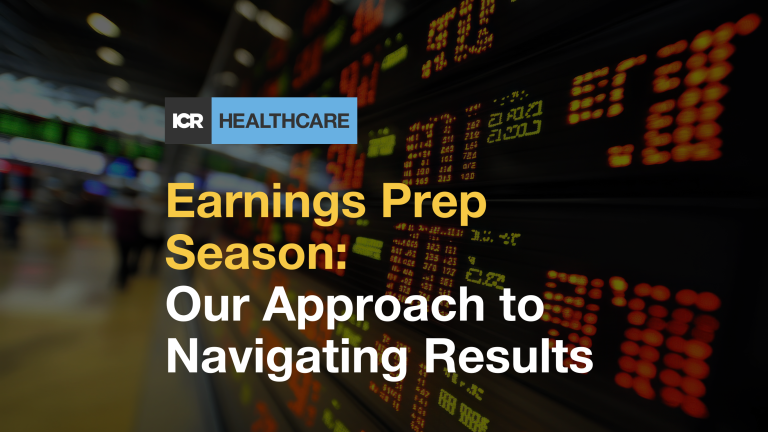We have always found it interesting to discover what’s on people’s minds and delve into what keeps them up at night. So, we thought it would be useful to share the questions we have received recently from a mix of public and private biotech management teams, along with our responses.
1. Can I successfully complete my IPO without a CFO?
Yes. A number of ICR Westwicke biotech clients have completed IPOs without a CFO. Clearly, companies must meet financial disclosure and reporting obligations required by all applicable regulations, but this can be achieved by having a strong director of finance and a competent finance department, along with a capable board member to assume the role of financial expert. Longer term, however, having a CFO is vital and expected, and the person in the role should be a key communicator with the investment community, right alongside the CEO.
2. Do I need to engage an investment bank to do a private financing?
No. Private companies do not need to mandate an investment bank to complete a private financing; however, engaging one may bring advantages in terms of relationship-building and access to capital sources and introductions you currently lack. That said, many ICR Westwicke clients have successfully completed pre-IPO financings on their own.
3. Why is it so difficult to get meetings with the buy side right now?
This question comes up frequently and requires different answers for private and public companies.
For privates, the truth seems to be that the absence of a robust IPO market means that institutional investors are already sitting on more private (illiquid) paper than they would prefer. A robust IPO market would have provided them the option of making an exit by now. Holding these investments not only means their financial resources may be over-committed, but, in addition, a significant part of their time must be used for monitoring and oversight of the private investments that may not produce a return any time soon. As such, booking meetings to evaluate new private company investment ideas just isn’t of any interest right now.
For public companies, the issue seems to be that the relative underperformance of life sciences versus some other sectors has meant a pullback from the generalist funds. Consequently, there are fewer meeting-takers for a steady or increased number of meeting-seekers. This has resulted in the buy side feeling more overwhelmed and they are taking a very selective stance.
These conditions are probably truer for non-deal road shows than they are for transaction-related meeting requests driven by a follow-on offering for a public company. Funds are more likely to take a meeting if they know there is a pending or imminent raise.
4.When will I need to engage both a PR company and an IR/capital markets advisory firm?
It depends. There are very few development-stage biotechs that need to engage both an IR and a PR firm. To understand why, you have to remember the subtle differences between the two. Investor relations consultants give advice and craft materials such as corporate decks, news releases, factsheets, and online content material, all focused on one audience: the investment community, which includes buy- and sell-side analysts, bankers, existing and potential investors, and lenders. Public relations companies tend to draft materials, such as news releases, with the general public and perhaps a specific disease community, such as physicians, caregivers, and patients, in mind. Therefore, until a development-stage biotech has progressed to the point of needing to reach a wider audience than the investment community, engaging a PR firm is more likely than not unnecessary or duplicative.
5. Should I hold an investor day this year?
This inquiry uniformly comes from public companies. Let’s start by defining exactly what an investor day (or an R&D day) is. It is usually a half day when a public company invites all of its institutional investors and sell-side analysts to gather either in-person (typically at a venue in New York) or virtually to hear a deep dive on new information about a company. Investor days represent big commitments for both sides, taking a lot of effort for companies to organize and consuming significant time of attendees. However, it is an excellent means to unveil major data, set the stage for upcoming clinical trial results, or explain the rollout of a commercial strategy. Whatever the subject matter, it should be new, well-crafted, and compelling so as not to misuse resources, time, and goodwill of investors.
So, should you do an investor day this year? Well, do you have something new and major to talk about in-depth? If the answer is yes, then holding in investor day is a good idea and at a minimum, warrants thoughtful consideration. Significant new news should drive the decision.
6. I have data coming out later in the year; how can I best prep/engage with investors to make sure my data gets noticed?
First things first: You should have a bench of sell-side analysts who are closely tracking your progress and are ready to spread your good news far and wide when you finally announce it. In order for them to spread the correct message, they need to understand how important the upcoming data is to your company.
Analysts are stretched and covering many companies, so a little spoon-feeding may be in order. To reinforce their understanding, you have a variety of tools to choose from including an investor day, a non-deal road show, a key opinion leader teach-in and, in some cases, explicitly laying out the various scenarios and their implications in your corporate presentation and press releases. The latter leaves you with less wiggle room in the case of ambiguous data, but all can be used to shine a brighter light on the big announcement you’ve been waiting years to make.
To learn more about other issues currently facing public or soon-to-be-public companies, listen to the ICR podcast, Welcome to the Arena. Or, if you want to discuss any of the above matters in further detail or have additional questions, please don’t hesitate to reach out.



